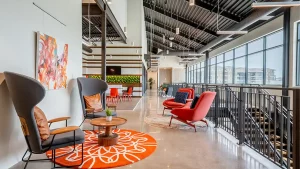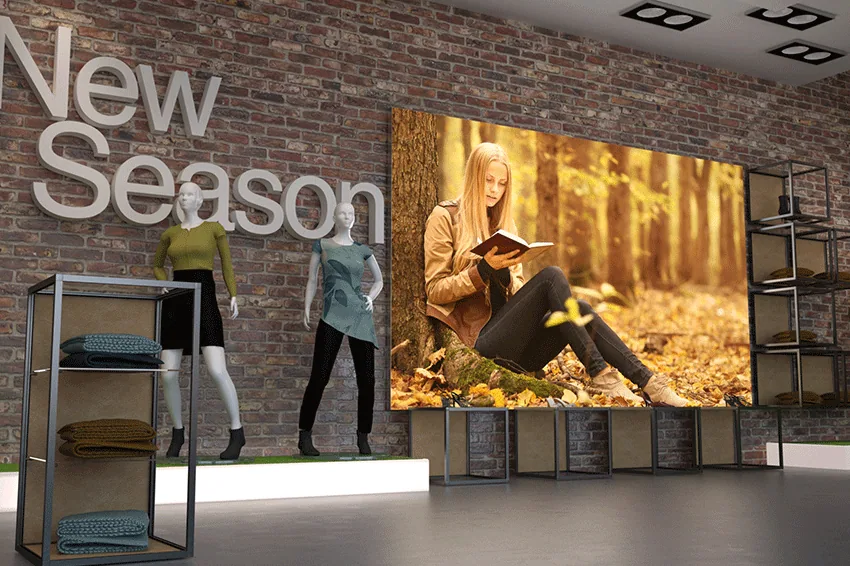In the ever-evolving tech industry, the demand for adaptable commercial spaces is on the rise. The rigid office layout is no longer enough; instead, flexible spaces that foster collaboration and creativity are essential. By embracing versatile layouts and modular designs, tech firms can cultivate an environment that nurtures growth and innovation. But what design elements are crucial for flexible commercial spaces, and how can they be seamlessly integrated for success?
Key Takeaways
- Flexible commercial spaces boost tech companies by fostering innovation, collaboration, and adaptability in response to rapid market changes.
- Modular workstations and movable partitions enable quick reconfiguration to match evolving business needs and project demands.
- Versatile layouts promote creativity, productivity, and employee well-being by providing a dynamic and inspiring work environment.
- Adaptable commercial spaces future-proof businesses by incorporating flexibility to stay ahead of technological advancements and trends.
- Flexible commercial spaces enhance job satisfaction by encouraging creative problem-solving, teamwork, and a sense of community among employees.
The Evolution of Commercial Spaces
The traditional concept of business spaces as static, inflexible environments has undergone a significant transformation in recent years, driven by the emerging needs of modern businesses, particularly in the tech industry, which demands adaptability in commercial space layouts that can adjust to their ever-changing requirements. This shift prioritizes flexibility in commercial space layouts, promoting innovation and collaboration.
Flexibility in Commercial Space Layouts
As businesses continue to evolve, adaptability in commercial space layouts has become a key driver of innovation, allowing companies to reimagine their workspaces and respond to shifting market demands with agility. Versatile layouts promote collaboration, creativity, and growth, while also enhancing the overall aesthetic and functionality of the space, ultimately nurturing a sense of community and belonging among employees.
Adapting to Rapidly Changing Needs
Modular workstations and movable partitions empower tech companies to reconfigure their spaces in response to shifting project requirements, ensuring that their physical environment remains aligned with their rapidly evolving business needs. By incorporating flexibility in commercial space layouts, companies can facilitate quick adaptations to changing project demands, cultivating a culture of innovation and collaboration.
Frequently Asked Questions
Can Flexible Commercial Spaces Accommodate Non-Traditional Work Arrangements?
Indeed, versatile commercial spaces can support non-traditional work arrangements by incorporating modular designs, shared workspaces, and adaptive furniture, nurturing a culture of collaboration and innovation that sustains the changing needs of modern tech companies.
How Do Flexible Spaces Impact Employee Morale and Job Satisfaction?
Versatile commercial spaces positively impact employee morale and job satisfaction by nurturing autonomy, creativity, and collaboration, resulting in heightened engagement, diminished turnover rates, and improved overall well-being.
Are There Any Specific Design Elements That Enhance Flexibility in Commercial Spaces?
Incorporating modular furniture, moveable walls, and multi-functional areas promotes adaptability, while natural light, ergonomic design, and technology integration further improve flexibility in commercial spaces, nurturing a dynamic and responsive work environment.
Can a Flexible Commercial Space Be Adapted for Multiple Business Types?
A versatile commercial space can truly be adjusted for multiple business types, enabling smooth transitions and reducing expensive renovations, thereby nurturing a dynamic and resilient work environment that accommodates diverse entrepreneurial needs.
Do Flexible Commercial Spaces Require Specialized Maintenance or Upkeep?
Adaptable commercial areas usually necessitate minimal specialized maintenance or upkeep, as their flexible design allows for easy reconfiguration and efficient use of resources, decreasing the need for extensive maintenance or renovation.
Conclusion
To sum up, flexibility in commercial space layouts is paramount for tech companies seeking to thrive in dynamic environments. By incorporating adaptable designs, companies can promote innovation, improve productivity, and boost employee morale. As the pace of technological advancements continues to accelerate, embracing flexibility in commercial spaces empowers organizations to stay agile, responsive, and poised for success.
Also read: Navigating Changes in Used PC Hardware Sales





